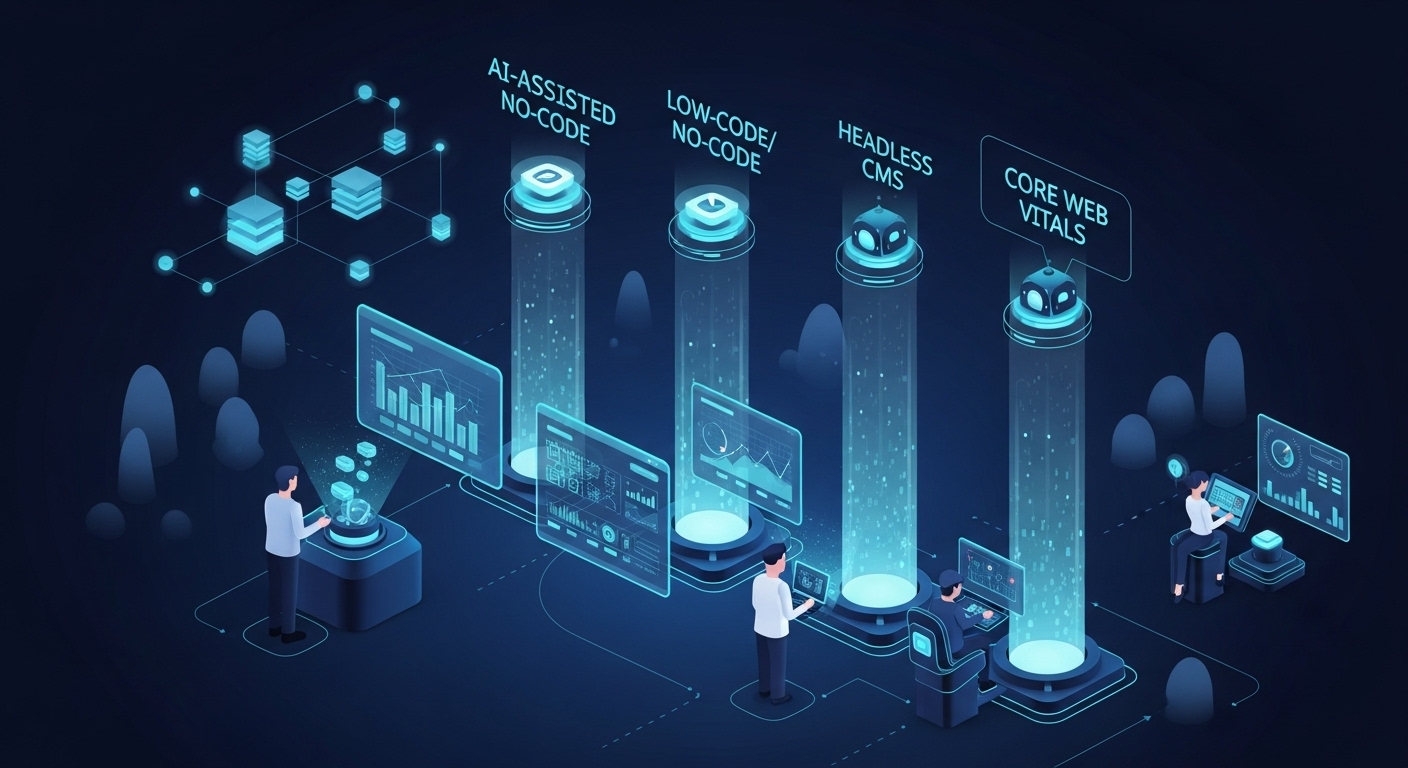The 2025 Web Development Playbook: Trends You Can’t Ignore

In 2025, I see the landscape of web development being reshaped by four big forces at once: low-code / no-code, AI in development, headless CMS, and Core Web Vitals as non-negotiable standards.
After diving into Digital Silk’s latest report, here are the things that stood out to me and why I think we should all be paying attention if we’re working in web, product, or digital strategy.
Low-Code / No-Code: more speed, fewer barriers
One thing is clear: low-code and no-code platforms are removing friction. They let non-technical people create prototypes, pages, or even products at an incredible pace.
This doesn’t replace developers. What it does is free us from repetitive tasks, allowing us to focus on the deeper, more complex challenges. It also means companies can validate ideas faster and move with more agility.
AI supporting developers
AI isn’t “coming soon.” It’s here, and it’s already writing code, automating tests, and optimizing performance.
The difference is in how we use it. That means combining AI with strong human oversight, reviewing and refining its output, and creating safe patterns so it operates in reliable ways. AI makes us faster, but direction, context, and vision are still our responsibility.
Headless CMS: freedom for content
Headless architecture has been gaining traction for years, and now it feels essential. By separating backend content from the frontend, it allows:
- Flexibility to deliver content to apps, IoT, AR/VR, and websites.
- Faster delivery since frontend teams can optimize independently.
- Scalability without breaking the entire system when you add new channels.
If omnichannel experiences are the goal, headless CMS is the way forward.
Core Web Vitals: not a trend, a requirement
Google’s Core Web Vitals (LCP, FID, CLS) are now baseline expectations. If your site loads slowly, responds poorly, or shifts visually, you’re not just frustrating users, you’re losing rankings and trust.
Performance, interactivity, and stability can’t be afterthoughts. They need to be part of the DNA from day one.
Security always comes first
It didn’t get as much focus in the report, but for me it’s obvious: without security, nothing else matters.
APIs, headless systems, low-code tools, they expand what we can do, but they also expand the attack surface. Every choice we make has to include security strategy at its core.
This report isn’t just about shiny new trends. To me, it feels more like a roadmap for building websites that actually last:
- Mental speed, how fast we can decide, contextualize, and strategize, matters as much as technical speed.
- It’s not about using AI or avoiding it, it’s about integrating it responsibly.
- Content should flow freely across any channel, without being locked to one system.
- Web performance isn’t optional anymore. It’s expected.
The companies and developers who internalize these principles won’t just keep up, they’ll set the standard for the next decade of digital experiences.
